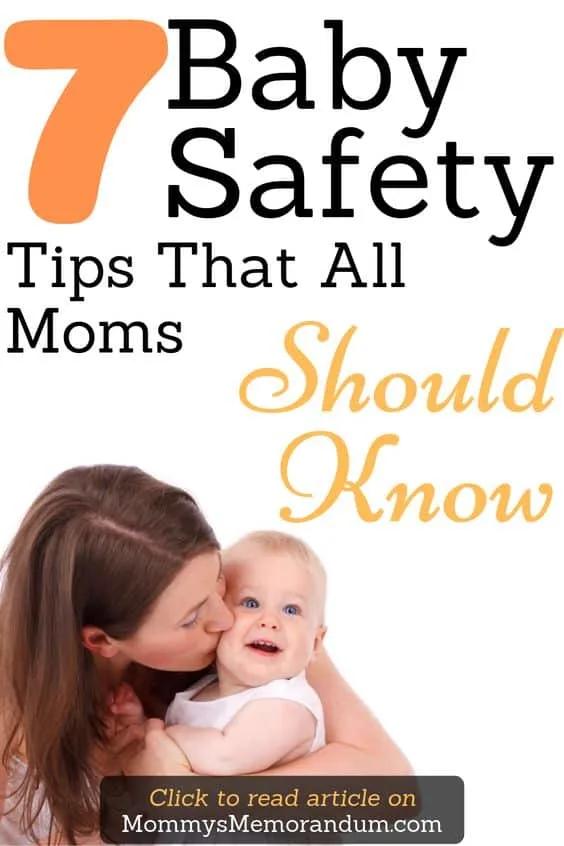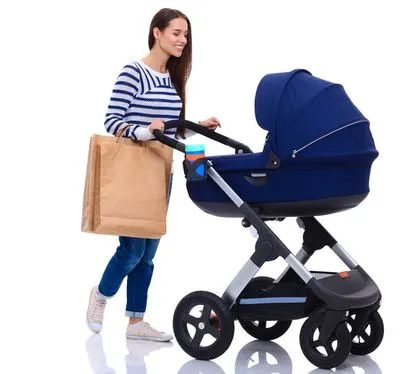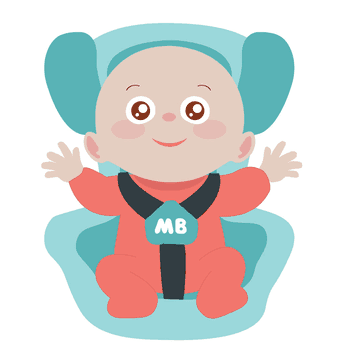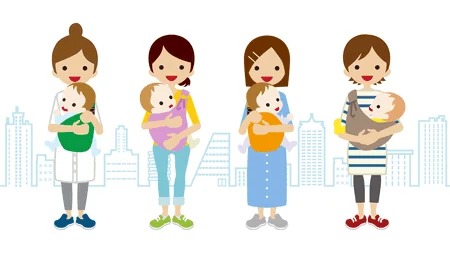Being a mother can throw some surprises right on your way. As, a mom you are bound to have several concerns from breastfeeding, nappy change, bathing your baby, and fun activities.
The early days might be exhausting, and you may every so often worry about the safety of your baby.
Keeping your baby safe is an essential part of motherhood’s responsibility.
Danger will lurk everywhere for your new bundle of joy at home and away from home too.
The following safety tips are essential for moms of newborns:

Keeping Your Baby Safe Outdoors
1. Proper Use of a Baby Stroller
One important item that most moms of newborns opt for is the baby stroller.
It allows you to venture out and explore the outside together with your baby.
There are many brands out there in the market, and choosing one of high quality for your baby’s safety is a top priority.
If you have an older child, then you need to go for the sit-and-stand stroller.
Your baby will be wrapped around the harness while the other child coolly rides on it.
It will be fun for the children, but most importantly, your baby will be protected from falling.

2. Car Safety
Traveling with your baby will allow you to break from your routine.
Your baby will enjoy a change in the environment.
However, you may worry if having a baby in the car is safe.
You can do a few things to ensure your travel is smooth and you arrive at your destination safely and sound.
Ensure your baby is in the back seat and seated on an approved baby seat, also known as a restraint.
While shopping for a baby seat, ensure it is appropriate for the baby’s age and size to allow for his comfort.
Fit it appropriately and follow the instruction manual or consult a professional if you cannot fix it.
Ensure your baby is not left unattended in the vehicle; if you must leave, ensure there is an adult to watch over him.

3. Proper Use of Baby Slings
As a mom, slings will make your life easier since you can carry the baby and at the same time, your hands are free.
They are hands-on and safe tools for use. However, your baby could suffocate if not well-positioned.
Ensure the sling is tight such that your baby’s head is in an upright position.
A baby should not stay bent as it may restrict breathing.
The baby’s face should be perpendicular to your chin — restraint from covering the baby’s mouth, face, and nose.
Slings are not suitable for preemies and underweight babies.

Keeping your baby safe at home
4. Handling the Baby
A baby is a beautiful addition to the family, and everyone wants to hold and play with him.
However, they are prone to infection.
Therefore, it’s essential to provide a hygienic and clean environment.
Ensure those handling the baby without excluding you washes their hand.
People suffering from flu and cold should not be in contact with your baby.
Sometimes taking care of a young baby can take a toll on you, and you may want to relax or nap.
In this case, leave your baby under the supervision of an adult. Watch out for small children near the baby.
If you have pets in the house, ensure they are away from the baby, as babies may sometimes upset the set.
While holding your newborn, don’t drink hot beverages to prevent burns.
Change nappies or diapers in a safe area to prevent the baby from rolling over.
Your one hand should always be on the baby.

5. Bathing Your Baby
Bath times are fun for the baby as they stretch and feel relaxed.
They play with the water and may easily drown if not held properly.
Ensure your one hand is holding the baby, and avoid using a bath seat for a newborn.
In case of any distractions, for example, a doorbell or a call on your phone, tie the baby with a warm towel and take him with you.
Immediately empty the bathwater after use.

6. While Napping
Most moms worry about their babies dying while asleep, also known as Sudden Infant Death Syndrome (SIDS).
However, it’s entirely possible to prevent this fatal occurrence. Always put your baby to sleep while lying on their back.
Research has shown that proper breastfeeding is suitable for babies as they are easily woken up from sleep.
It thus can significantly reduce the risk of SIDS.
Ensure the baby cot is free of toys and other objects, as this can overwhelm a baby.
Avoid covering your baby’s head as they sleep.

7. Safety During Feeding
You may want to introduce your baby to solid food as they grow big.
However, most accidents occur while a baby is feeding.
Choking can be fatal.
You can start weaning by blending, shredding, or grating hard fruits and vegetables.
Avoid feeding your baby on large pieces of food.

Conclusion
Babies need close supervision at all stages of development.
It may be a daunting task to keep them safe, especially when they grow older.
However, with proper techniques, it’s possible to keep them out of danger as it is vital for their physical health and psychological development.
